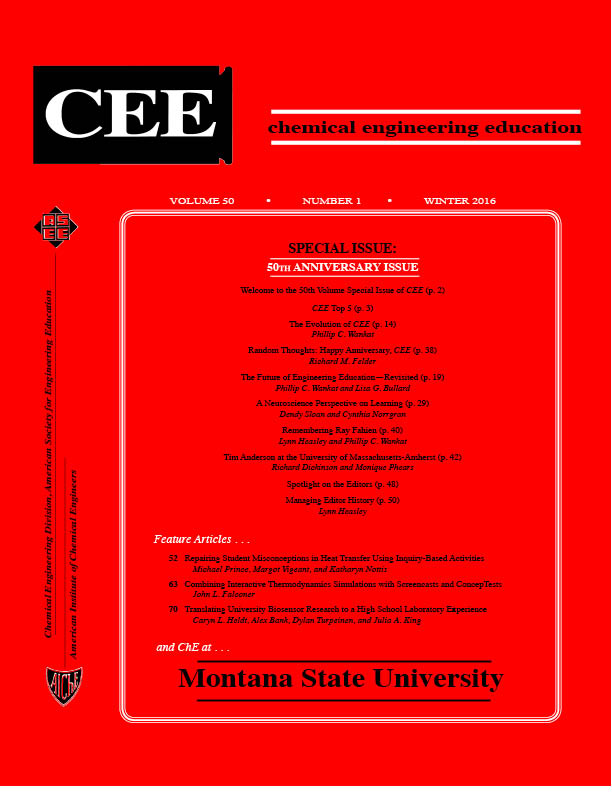Repairing Student Misconceptions in Heat Transfer Using Inquiry-Based Activities
Resumen
Eight inquiry-based activities, described here in sufficient detail for faculty to adopt in their own courses, were designed to teach students fundamental concepts in heat transfer. The concept areas chosen were (1) factors affecting the rate vs. amount of heat transfer, (2) temperature vs. perceptions of hot and cold, (3) temperature vs. energy and (4) the effect of color on thermal radiation. These concept areas were identified in the literature as both important for students to know and difficult for them to learn. The effectiveness of the inquiry-based activities was tested by examining pre/post learning gains on the Heat and Energy Concept Inventory (HECI) in both traditional classes and classes utilizing the activities. Results show that using these activities more than tripled the learning gains found in the targeted concept areas compared to conceptual learning gains found in the control classes utilizing traditional instruction.


